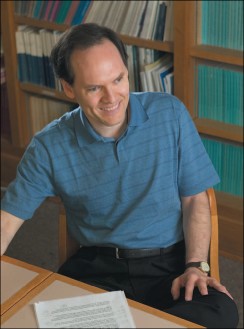
What’s the best or worst advice you ever received when you were thinking about becoming an economist?
The best advice to a budding economist (although I didn't read it until many years after I became an economist) comes from Friedrich Hayek: "nobody can be a great economist who is only an economist – and … the economist who is only an economist is likely to become a nuisance if not a positive danger.”
The worst advice I heard may have been that economics is important to study because it's all about money and you can earn a lot if you study it. Economics is about a lot more than just money and you can earn a very good living doing it. Money is important, but if that's your only motivation, you won't be happy as an economist or as a human being.
Who’s the most important economist most people—including economists—have never heard of?
Most people have not heard of one of the most important economists of the twentieth century, Simon Kuznets, who did more than anyone else to conceptualize our national income and product accounts and to push estimates of GDP well back into the 19th century.
Less well known are two other economic historians who deserve to be read: Robert Higgs, whose research on the expansion of the U.S. government, especially Crisis and Leviathan, is essential and Price Fishback, whose research has rewritten our understanding of the Great Depression era.
No comments:
Post a Comment